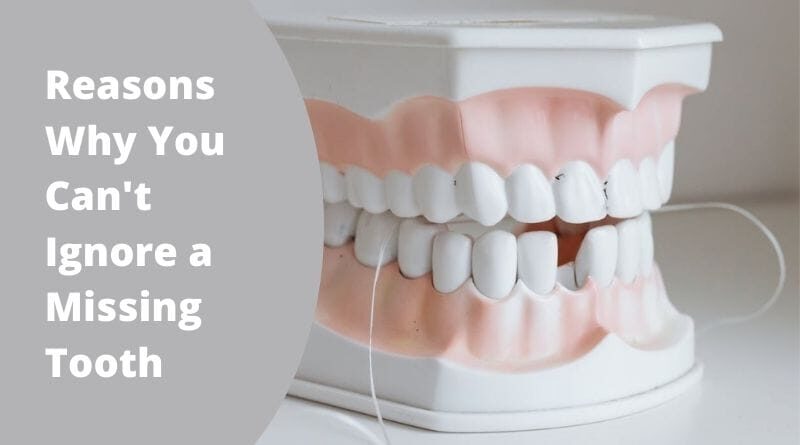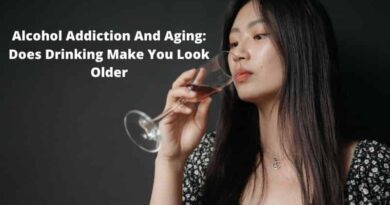10 Reasons Why You Can’t Ignore a Missing Tooth
As humans, we get two sets of teeth in our lifetime (we’re diphyodonts). It’s entirely normal for our milk (or baby) teeth to fall out and be replaced by permanent adult teeth.
However, tooth loss isn’t average once you’re past the age of the tooth fairy swapping your fallen tooth with a coin. If it were, our teeth would be continually replaced until the tooth bud was depleted, just like those of the crocodile and elephant (they’re polyphyodonts).
Our teeth are really important. You’ll know that they’re essential for us to eat, but did you know they’re also required to maintain the way we speak as well as the shape and structure of our jaw?
Losing teeth as an adult is not only embarrassing and unattractive but can lead to several dental and medical complications that you might not be aware of.
Let’s take a look at the effects of losing a tooth and work out who needs dental implants.
Table of Contents
Why You Shouldn’t Ignore Missing Teeth
Difficulties Eating
Just one missing tooth can influence what, where and how you eat. A missing tooth at the front will stop you from biting into a nice crunchy apple. If it’s a molar that’s missing, you’ll have issues with grinding and mashing food.
Indigestion & Bloating
- Carrying on from above, if you can’t chew your food correctly, smaller amounts of the digestive enzyme are produced in the stomach and small intestine.
- This means that food isn’t sufficiently digested, and larger food particles have to travel through the digestive tract.
- The consequence is digestive problems such as bloating, gas, and constipation. It can also lead to malnutrition and weight loss – after all, you won’t be getting all of the nutrients from the food you eat.
Read: Dental Dentures vs Implants
Lack of Nutrients Leading to Ill health
- To keep yourself healthy and protect yourself against chronic disease, you need to eat a wide variety of healthy foods.
- If you can’t bite, chew or tear food effectively, you’re unlikely to eat a balanced diet. It will have severe effects on your health later down the line.
- You could, of course, get all your nutrients if you start blending all your foods. But do you want to live that way? If you’ve ever seen a liquefied Sunday dinner, you’ll know that it looks pretty disgusting.
Problems Speaking
- As well as having problems eating, missing teeth leads to problems with the way you speak.
- You might not think it, but the way we speak is caused by an interaction between breathing and tooth vibrations.
- One missing tooth can cause a lisp and slurring. It can cause issues with the way we articulate certain sounds and words.
Moving Teeth
- Whether it’s at the front or back of your mouth, a single missing tooth can cause neighbouring teeth to move and drift towards the gap.
- This affects your bite and changes the way you eat further and may result in you needing to see an orthodontist.
Gum Disease
- When a tooth falls out, it leaves a big hole in the gum, a deep pocket for bacteria to get into.
- It’s hard to get the bacteria out, and it can lead to gum disease, which causes receding gums, bone loss, and the loss of more teeth.
Read: Tooth Extraction Aftercare
Bone Loss
- After a tooth is lost, reabsorption of tooth-supporting bone often takes place. This causes the jawbone to shrink.
- It might not be too visible with one missing tooth, but it can lead to instability of the neighbouring teeth, and it might cause them to fall out.
Changes in Appearance
- Teeth support our cheeks and lips. Missing teeth cause the cheeks and lips to sag and look sunken. We also get more wrinkles as the teeth don’t fill the skin.
- As the jaw shrinks (see bone loss above), it changes the shape of our face and can make the nose look bigger.
- All of this can make you look older than you are.
Chronic Health Issues
- We touched on a lack of nutrients leading to ill health, but gum disease caused by missing teeth (see above) has been linked to several severe health conditions, including heart disease and diabetes.
- Tooth loss not only makes you look different and causes changes in the way you eat or talk, but it can also have severe effects on your overall health.
Loss of Self Confidence
- If you look different, talk differently and eat differently, your confidence will very likely be affected. It leads many people with missing teeth to avoid others and stay home because it’s less embarrassing.
- It can affect you socially and psychologically. It can even impact your ability to find work.
Read: Confidence Booster: Teeth Whitening
The Good News: You Can Stop The Effects of Missing Teeth!
It will undoubtedly be music to your ears to hear that you don’t have to sit around and wait for the consequences of missing teeth!
Missing teeth can be replaced with dental implants.
Implants offer a predictable and long-lasting solution, which, when placed correctly, have a very high success rate. They present a better quality of life than alternative methods of replacing teeth.
However, the longer your teeth are missing, the bigger the impact on your life. So it’s a really good idea to replace any missing teeth or teeth as soon as possible after losing them.
So What Should You Do Next?
Contact a specialist dental implant team for a consultation and find out if you’re suitable for treatment.
Recommended Articles:
Signs Your Oral Health Is Deteriorating




